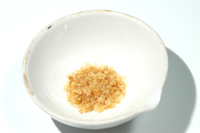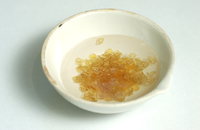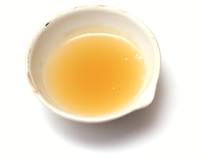Difference between revisions of "Dissolving"
(→Key Stage 3) |
(→Key Stage 3) |
||
| Line 26: | Line 26: | ||
===Meaning=== | ===Meaning=== | ||
[[Dissolving]] is when a [[solid]] breaks apart into individual [[Molecule|molecules]] or [[Atom|atoms]] when it is [[Mixture|mixed]] with a [[liquid]]. | [[Dissolving]] is when a [[solid]] breaks apart into individual [[Molecule|molecules]] or [[Atom|atoms]] when it is [[Mixture|mixed]] with a [[liquid]]. | ||
| + | |||
| + | ===About Dissolving=== | ||
| + | : Not all [[solid]]s can [[dissolve]] in water. A [[solid]] which can be [[dissolved]] easily in [[water]] is described as [[soluble]] but one that cannot be easily [[dissolve]]d in [[water]] is described as [[insoluble]]. | ||
Revision as of 14:21, 24 September 2018
Contents
Key Stage 2
Meaning
Dissolving is when a solid is placed in a liquid and it is broken down into tiny pieces that can't be seen.
About Dissolving
- Dissolving is a reversible process.
- When something dissolves the solid cannot be seen anymore.
- If a coloured solid dissolves the water will turn that colour.
| Brown sugar is a soluble solid. | Brown sugar can dissolve in water. | The solid cannot be seen anymore because it has dissolved. The solution is now the colour of the brown sugar. |
Note to Teachers
Students often confuse dissolving for melting. It is important to make sure they have active experiences of both so that they can understand the distinction. Melting ice, melting wax. Dissolving sugar, dissolving salt, dissolving coloured jelly crystals.
Key Stage 3
Meaning
Dissolving is when a solid breaks apart into individual molecules or atoms when it is mixed with a liquid.


